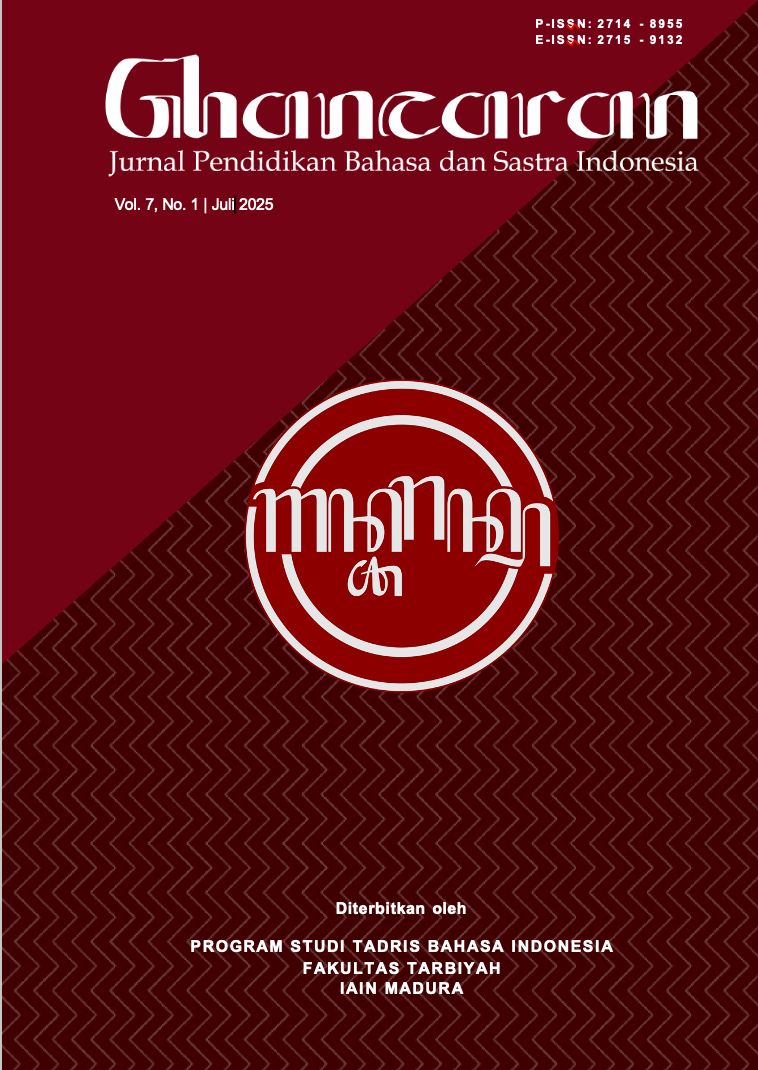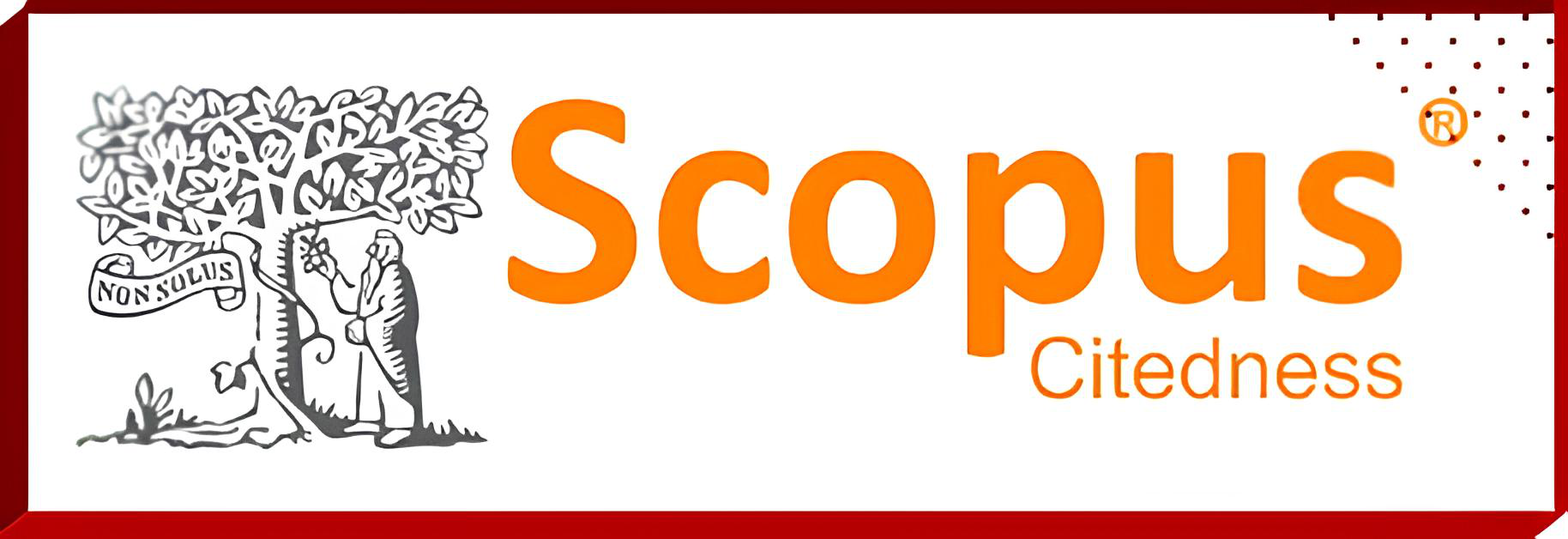Deep Learning and Application in Elementary Schools: an Exploration of Learning Practices
 Abstract views: 985
,
Abstract views: 985
,
 PDF downloads: 525
PDF downloads: 525
Abstract
This paper aims to explore the implementation of the deep learning approach in learning science for grade IV at SDN 2 Ringinanom Ponorogo. This study uses a qualitative case study approach with data collection techniques using interviews, observations, and documentation studies. The researcher uses interactive data analysis by Miles, Huberman, and Saldana which includes data reduction, data presentation, and verification and drawing conclusions. The results of the study indicate that the implementation of the deep learning approach at SDN 2 Ringinanom was carried out by integrating three main principles, namely meaningful learning, mindful learning, and joyful learning. These three principles have been proven to be able to create meaningful learning experiences by strengthening aspects of understanding, application, and reflection. The application of deep learning also has an impact on improving learning outcomes and student involvement in learning. These findings provide an important contribution by offering pedagogical innovations that focus on cognitive achievement as well as the development of students' affective, psychomotor and social dimensions. The results of this study also confirm that the application of deep learning has been proven to be able to create a more active and participatory learning experience to develop the knowledge and skills needed by students in the future.
Downloads
References
Ahmad, J., Farman, H., & Jan, Z. (2019). Deep Learning Methods and Applications. Spinger. 12, (31–42).
Ardiansyah, M., & Nugraha, M. L. (2025). Implementasi Deep Learning untuk Meningkatkan Hasil Pembelajaran di Sekolah Menengah Kejuruan (SMK) Se-Jakarta Barat. Reseach and Development Journal of Education, 11(1), 302–309.
Baxter, P., & Jack, S. (2008). Qualitative Case Study Methodology: Study Design and Implementation for Novice Researchers. The Qualitative Report, 13(4), 544–559.
Beattie, V., Collins, B., & McInnes, B. (1997). Deep and Surface Learning: A Simple or Simplistic Dichotomy? Accounting Education, 6(1), 1–12.
Bhasin, H. (2024). Hands-on deep learning: a guide to deep learning with projects and applications. Hoboken: Apress.
Bishop, C. M., & Bishop, H. (2024). Deep Learning: Foundation and Concepts. New York: Springer International Publishing.
Blom, S., & Severiens, S. (2008). Engagement In Self-Regulated Deep Learning of Successful Immigrant and Non-Immigrant Students in Inner City Schools. European Journal of Psychology of Education, 23(1), 41–58.
Cahyanto, B. (2022). Student Diversity and Differentiated Learning : Exploring Differentiated Learning Practices in Elementary Schools. Widyagogik Jurnal Pendidikan dan Pembelajaran Sekolah Dasar, 10(1), 267–281.
Cahyanto, B. (2023). School Culture-Based Character Education: Implementation of Strengthening Religious Character in Islamic Primary Schools. MODELING: Jurnal Program Studi PGMI, 10, 832–843.
Cahyanto, B., Arifin, I., Al Atok, R., Hadi, S., & Dewi, D. K. (2024). Exploring School Core Values and Their Impact on Student Achievement Culture: Transformational Evidence From A Suburban School. Sciences of Conservation and Archaeology, 36(3), 354-369.
Cahyanto, B., Srihayuningsih, N. L., Nikmah, S. A., & Habsia, A. (2024). Implementasi Model Pembelajaran Problem Based Learning (PBL) Berbantuan LKPD untuk Meningkatkan Literasi Sains Siswa. Jurnal Ibriez: Jurnal Kependidikan Dasar Islam Berbasis Sains, 9(2), 263-278.
Cahyanto, B., Badaruddin, S., Rini, T. A., Kamarzaman, M. H., & Syafuddin, A. (2024). Internalization of the Pancasila and Rahmatan Lil Alamin Student Profiles Dimensions in the Implementation of the Merdeka Curriculum in Madrasah Ibtidaiyah. Cendekia: Jurnal Kependidikan dan Kemasyarakatan, 22(2), 224-241.
Clare, B. (2007). Promoting Deep Learning: A Teaching, Learning and Assessment Endeavour. Social Work Education, 26(5), 433–446.
Creswell, J. W. (2007). Qualitative Inquiry & Research Design, Choosing Among Five Approaches. California: Sage Publications.
Davies, D., & Dodd, J. (2002). Qualitative Research and the Question of Rigor. Qualitative Health Research, 12(2), 279–289.
Denzin, N. K., & Lincoln, Y. S. (2011). Handbook of Qualitative Research. California: Sage Publications.
Derman, M. (2023). Outdoor Learning in Environmental Education: Evaluation of Science Curriculums. International Conference on Engineering, Natural and Social Sciences, 1(1), 166–171. Konya: All Sciences Proceedings.
Ertugrul, O. F., Guerrero, J. M., & Yilmaz, M. (2024). Shallow Learning vs. Deep Learning. New York: Springer Nature Switzerland.
Faliyandra, F., Saryono, D., Sayono, J., Zainuddin, M., & Cahyanto, B. (2024). Reconstruction of School Dropout Handling in Community: Motivating Farmer Parents Through Collaborative Education in Indonesian Elementary Schools. Sciences of Conservation and Archaeology, 36(4), 48-68.
Frost, N. (2011). Qualitative Research Methods in Psychology Combibing Core Approaches. London: Open University Press.
Fullan, M., Azorín, C., Harris, A., & Jones, M. (2024). Artificial Intelligence And School Leadership: Challenges, Opportunities and Implications. School Leadership & Management, 44(4), 339–346.
Gamba, J. (2024). Deep Learning Models. Singapore: Springer Nature Singapore.
Goyal, P., Pandey, S., Jain, K., Goyal, P., Pandey, S., & Jain, K. (2018). Introduction to Natural Language Processing and Deep Learning. Deep Learning for Natural Language Processing: Creating Neural Networks with Python, 1-74.
Grauerholz, L. (2001). Teaching Holistically to Achieve Deep Learning. College Teaching, 49(2), 44–50.
Grover, S., Pea, R., & Cooper, S. (2015). Designing for Deeper Learning in A Blended Computer Science Course for Middle School Students. Computer Science Education, 25(2), 199–237.
He, F., & Tao, D. (2025). Foundations of Deep Learning. Singapore: Springer Nature Singapore.
Janiesch, C., Zschech, P., & Heinrich, K. (2021). Machine Learning and Deep Learning. Electronic Markets, 31(3), 685–695.
Jarbou, M., Won, D., Gillis-Mattson, J., & Romanczyk, R. (2022). Deep Learning-Based School Attendance Prediction for Autistic Students. Scientific Reports, 12(1), 1431.
Juarminson, E. (2021). Persepsi Guru Terhadap Implementasi Kurikulum Deep Learning di Sekolah Menengah. Jurnal Edu Research : Indonesian Institute for Corporate Learning And Studies (IICLS), 2(2), 28–33.
Kemendikdasmen. (2025). Pembelajaran Mendalam: Menuju Pendidikan Bermutu Untuk Semua. Jakarta: Pusat Kurikulum dan Pembelajaran Badan Standar, Kurikulum, dan Asesmen Pendidikan Kementerian Pendidikan Dasar dan Menengah Republik Indonesia.
Kovač, V. B., Nome, D. Ø., Jensen, A. R., & Skreland, L. L. (2025). The Why, What and How of Deep Learning: Critical Analysis and Additional Concerns. Education Inquiry, 16(2), 237-253.
LeCun, Y., Bengio, Y., & Hinton, G. (2015). Deep learning. Nature, 521(7553), 436–444.
Lynch, R., McNamara, P. M., & Seery, N. (2012). Promoting Deep Learning in A Teacher Education Programme Through Self- And Peer-Assessment and Feedback. European Journal of Teacher Education, 35(2), 179–197.
Mathew, A., Amudha, P., & Sivakumari, S. (2021). Deep Learning Techniques: An Overview. Proceedings of AMLTA, 599–608.
McPhail, G. (2021). The Search for Deep Learning: A Curriculum Coherence Model. Journal of Curriculum Studies, 53(4), 420–434.
Miles, M. B., & Huberman, A. M. (1994). Qualitative Data Analysis (Second Edi). Los Angeles: Sage Publications.
Miles, M. B., Huberman, A. M., & Saldana, J. (2014). Qualitative Data Analysis: A Methods Sourcebook (Three Edit). Lose Angeles: Sage Publications.
Miller, E. C., & Krajcik, J. S. (2019). Promoting Deep Learning Through Project-Based Learning: A Design Problem. Disciplinary and Interdisciplinary Science Education Research, 1(7), 1-10.
OECD. (2018). Education and Skills 2030: Conceptual Learning Framework. Draft Concept Note: Knowledge, Skills, Attitudes and Values for 2030 (Issue 2016). Vancouver: 9th Informal Working Group (IWG) Meeting.
Pang, S., del Coz, J. J., Yu, Z., Luaces, O., & Díez, J. (2017). Deep Learning to Frame Objects for Visual Target Tracking. Engineering Applications of Artificial Intelligence, 65, 406–420.
Perrotta, C., & Selwyn, N. (2020). Deep Learning Goes to School: Toward a Relational Understanding of AI in Education. Learning, Media and Technology, 45(3), 251–269.
Putri, R., Syahnam, S., Kurnia, H., Indah, M., & Fierna, M. (2022). Penerapan Deep Learning dalam Pendidikan di Indonesia. Prosiding Seminar Generasi Pancasila. 2, 97–102.
Rini, T. A., & Cahyanto, B. (2020). Supporting Elementary Students Creative Writing Skill With Assessment as Learning. ECPE Conference – Early Childhood and Primary Education, 487(1), 51–57.
Rini, T. A., Cahyanto, B., & Sholihah, F. P. (2020). The Portraits of Digital Literacy Awareness Amid Covid-19 Pandemic. In 6th International Conference on Education and Technology (ICET 2020) (pp. 433-437). Atlantis Press.
Shinde, P. P., & Shah, S. (2018). A Review of Machine Learning and Deep Learning
Applications. In 2018 International Conference on Computing Communication
Controland Automation (ICCUBEA), 1–6.
Smith, T. W., & Colby, S. A. (2007). Teaching for Deep Learning. The Clearing House: A Journal of Educational Strategies, Issues and Ideas, 80(5), 205–210.
Sufian, A., Ghosh, A., Sadiq, A. S., & Smarandache, F. (2020). A Survey on Deep Transfer Learning to Edge Computing for Mitigating the COVID-19 Pandemic. Journal of Systems Architecture, 108, 1-11.
Sun, Q. (2025). Education Studies Deep Learning ‑ Based Modeling Methods in Personalized Education. Artificial Intelegence Education Stuides, 1(1), 23–47.
Taylor, S. J., Bogdan, R., & DeVault, M. L. (2016). Introduction to Qualitative Research Methods: A Guidebook and Resource. In News.Ge (Fourth Edi). John Wiley & Sons, Inc.
Tsai, C.-C., Chung, C.-C., Cheng, Y.-M., & Lou, S.-J. (2022). Deep Learning Course Development and Evaluation of Artificial Intelligence in Vocational Senior High Schools. Frontiers in Psychology, 13, 1-18.
Wathon, A. (2024). Kesesuaian Kurikulum Merdeka dengan Kurikulum Deep Learning. ARZUSIN, 4(6), 1280–1300.
Yin, R. K. (2017). Case Study Research and Applications: Design and Methods. New Yor: Sage publications.
Zhang, L., & Ma, Y. (2023). A Study of The Impact of Project-Based Learning on Student Learning Effects: A Meta-Analysis Study. Frontiers in Psychology, 14, 1-14.
Copyright (c) 2025 GHANCARAN: Jurnal Pendidikan Bahasa dan Sastra Indonesia

This work is licensed under a Creative Commons Attribution-ShareAlike 4.0 International License.
Ghancaran: Jurnal Pendidikan Bahasa dan Sastra Indonesia uses an Open Access Policy under the Creative Commons Attribution-ShareAlike 4.0 International License. Authors publishing in this journal agree to the following terms:
- Ghancaran Journal holds the copyright and grants the journal rights for first publication with the work simultaneously licensed under a

The work is distributed under Creative Commons Attribution-ShareAlike 4.0 International License which allows others to share, copy, and redistribute the material in any media or format and adapt, remix, change, and develop the material even for commercial purposes, as long as it is stated credit and license derivative works under similar terms. - Authors may make additional contractual arrangements for non-exclusive distribution of the journal's published work version.
- Authors are permitted to post their work online (e.g., in institutional repositories or on their websites) before and during submission, as doing so may lead to productive exchange.



















